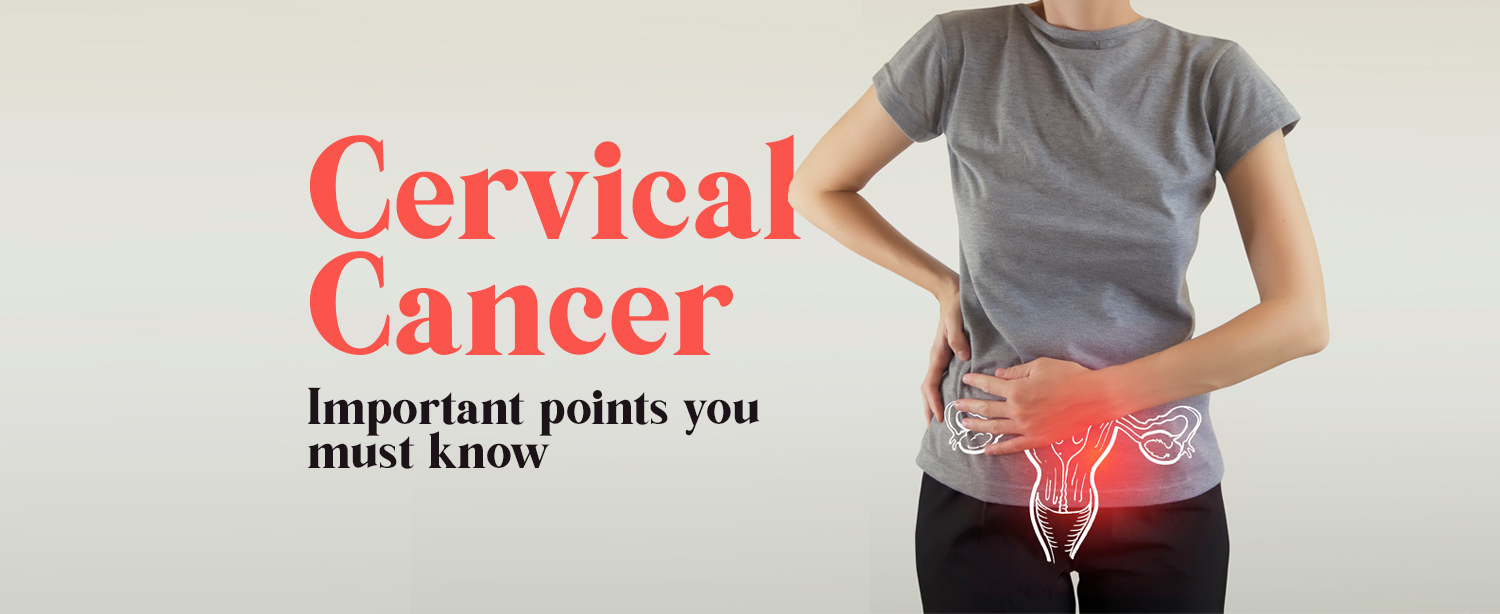India accounts for the highest number of cervical cancer cases in Asia, according to a latest Lancet study on the disease. There were around 6,04,127 new cases of cervical cancer in 2020 and India reported around 21% of the total cervical cases, as per the data. Cervical cancer is a type of cancer that occurs in the lower part of the uterus called the cervix – a part of the uterus that connects to the vagina. This disease is caused by various strains of human papillomaviruses (HPV), a group of viruses that cause sexually transmitted infections. When the human body is exposed to HPV, the body’s immune system typically prevents the infection from viruses but sometimes people with weaker immune systems cannot fight against the infection caused by HPV, which results in the virus surviving in their body for years, contributing to the process of cervical cells becoming cancerous cells.
Symptoms of Cervical Cancer
Sadly, cervical cancer doesn’t initially show any symptoms that are obvious. Only when the cancer has progressed do symptoms start showing up. It is advised to undergo routine screening tests that are known to identify the likelihood of having cervical cancer because in its early stages, the disease may not exhibit any symptoms at all.
The most common symptoms of cervical cancer in women include:
- Vaginal bleeding between periods or following sexual intercourse
- Vaginal discharge that is heavy, foul-smelling, or contains blood
- Pelvic pain or pain during intercourse
- Fatigue or weakness
- Loss of appetite or weight loss
- A change in bowel or bladder habits
- A lump or mass in the pelvic area
- Lower back pain
It’s important to note that these symptoms can also be caused by other conditions, and not all women with cervical cancer will have symptoms. That is why it is important to have regular cervical cancer screenings.
Cervical Cancer: Do’s & Don’t
Here are some essential healthcare precautions to note to reduce your risk of cervical cancer:
Do’s:
- Get regular Pap tests and cervical cancer screenings as recommended by your healthcare provider
- Practice safe sex to reduce the risk of HPV infection
- Maintain a healthy diet and exercise regularly to support overall health
- Understand the symptoms of cervical cancer and seek medical attention for any unusual changes
- Get the HPV vaccine
Don’ts:
- Don’t ignore or avoid recommended cervical cancer screenings
- Don’t smoke or use tobacco products
- Don’t rely solely on alternative medicine to treat cervical cancer
- Don’t ignore symptoms or delay seeking medical attention
Cause of Cervical Cancer
Here are some medically researched risk factors that increase your risk of getting cervical cancer:
- Poor vaginal hygiene
- Smoking
- Increased number of childbirths
- HIV infection
- Prolonged use of oral contraceptive pills
- Sexual intercourse with multiple partners
Lead a healthy lifestyle, take care of your reproductive health and see a gynaecologist for any unusual changes.
Cervical Cancer treatment at Kokilaben Dhirubhai Ambani Hospital
Cervical cancer is a serious disease that affects many women worldwide. Early detection and treatment are crucial in increasing the chances of survival. The Centre for Cancer at Kokilaben Dhirubhai Ambani Hospital, Mumbai is staffed with experienced and compassionate oncologists and onco-surgeons who specialize in the diagnosis and treatment of cervical cancer. We use state-of-the-art technology for prevention, screening and early detection, advanced imaging (including PET CT) to surgery, radiation and chemotherapy all under one roof to provide our patients with the best possible care. We are committed to fighting cervical cancer and saving lives. Please find below our website details: https://www.kokilabenhospital.com/departments/centresofexcellence/centrefor_cancer/gynecologicaloncology.html


